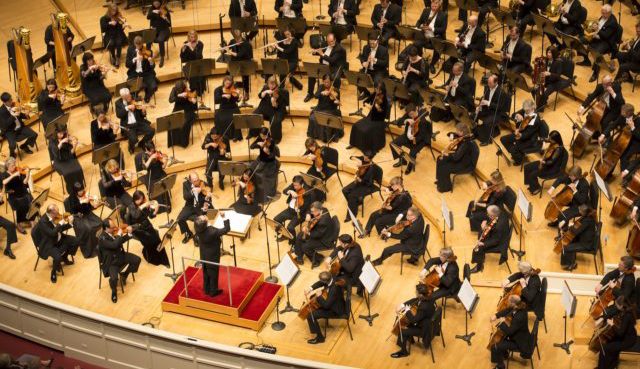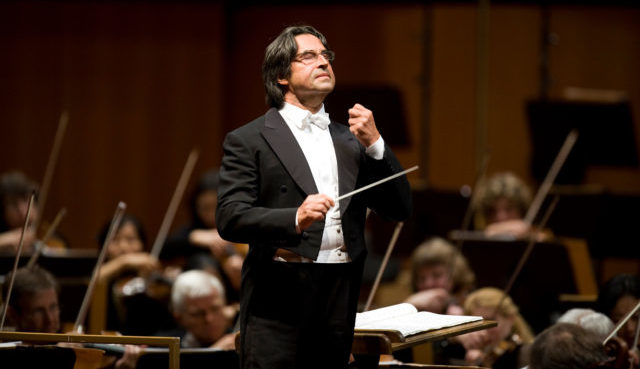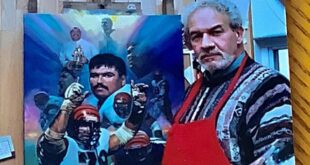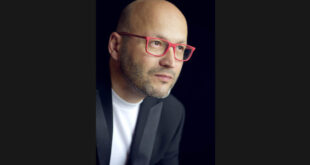
Nobody puts on a show quite like an Italian. And when the showman is Riccardo Muti, leading the Chicago Symphony Orchestra and Chorus in a concert of Italian opera masterworks, you know you’re in for a treat.
My wife and I leapt at the opportunity to attend after learning about the program in the June installment of Artbeat. But mere words on paper couldn’t possibly prepare us for the operatic thrill ride to come.
Our seats were on the fringe of the first balcony, where it hovers above the left side of the stage. From that vantage point, we enjoyed an unfettered view of one of the world’s greatest conductors leading one of the finest symphonies on the planet in a performance guaranteed to fan the flames of italianità in anyone with a pulse.
The first half of the program belonged to Verdi and it flew by, hurtling from the overture to “Nabucco” through a quartet of iconic choruses and coming to rest after the overture to “I vespri siciliani.”
The orchestra played with poise and passion under Muti’s deft command. Often with gestures as simple as a raised index finger, a hand cupped to the ear or a flick of the wrist, he inspired a performance of both power and grace. At 150 voices strong, the chorus was otherworldly as it effortlessly soared from ephemeral to thunderous and back.
The second half was more esoteric but just as stirring, featuring intermezzi from Puccini’s “Manon Lescaut” and Mascagni’s “Cavelleria rusticana” and culminating in the prologue to Boito’s “Mefistofele.”
Craftily weaving the sacred and the profane, Boito’s choral tour de force was brilliantly rendered, with the symphony chorus soaring as the Heavenly Hosts, the Chicago Children’s Choir cavorting as cherubim, and bass Riccardo Zanellato stealing the show as the sly and irreverent Devil himself.
Having roped the Almighty into a wager for Faust’s soul, Satan stalked off the stage, leaving the combined choruses to cleanse the prologue with a fever’s pitch of piety that brought down a packed house.
I’m embarrassed to admit that this is the first time I’ve had the sublime pleasure of witnessing the maestro in action despite his long tenure in the Windy City. He’s a true international treasure, and we’re unfathomably lucky to have him so close at hand. The elation I felt as the applause died down was soon tempered with regret as I considered the years of missed opportunities to support him as an audience member and patron.
As I parsed the list of benefactors in the program book, I discovered that I wasn’t along in that regard. Of the more than 2,000 annual donors, only 60 bore Italian surnames, comprising a scant 3 percent of the total when our presence in the general population is nearly twice that.
According to Fra Noi correspondent Judith Anne Testa, the opposite was the case during the Italian Renaissance, when patronage of the musical arts was a point of pride for countless aristocratic families. The Medici alone maintained its own group of professional singers, and the very first madrigals were committed to paper by musicians in their employ.
Few of us today have the financial resources to singlehandedly launch a musical genre. In fact, most are hard-pressed to muster the $1,000 needed to crack the first level of CSO sponsorship. That’s certainly not in my budget, but I do have $100 to toss into the hat, and I’m guessing some of you do, too.
I’d like to propose that we pool our resources, call ourselves the Medici Guild, and together aim for the $1,000 minimum that will earn us a listing in next year’s program. (For details, click here.) As Italian Americans, we have a proud legacy of patronage to uphold, and there is no worthier recipient of that support than our beloved maestro.

 Fra Noi Embrace Your Inner Italian
Fra Noi Embrace Your Inner Italian






